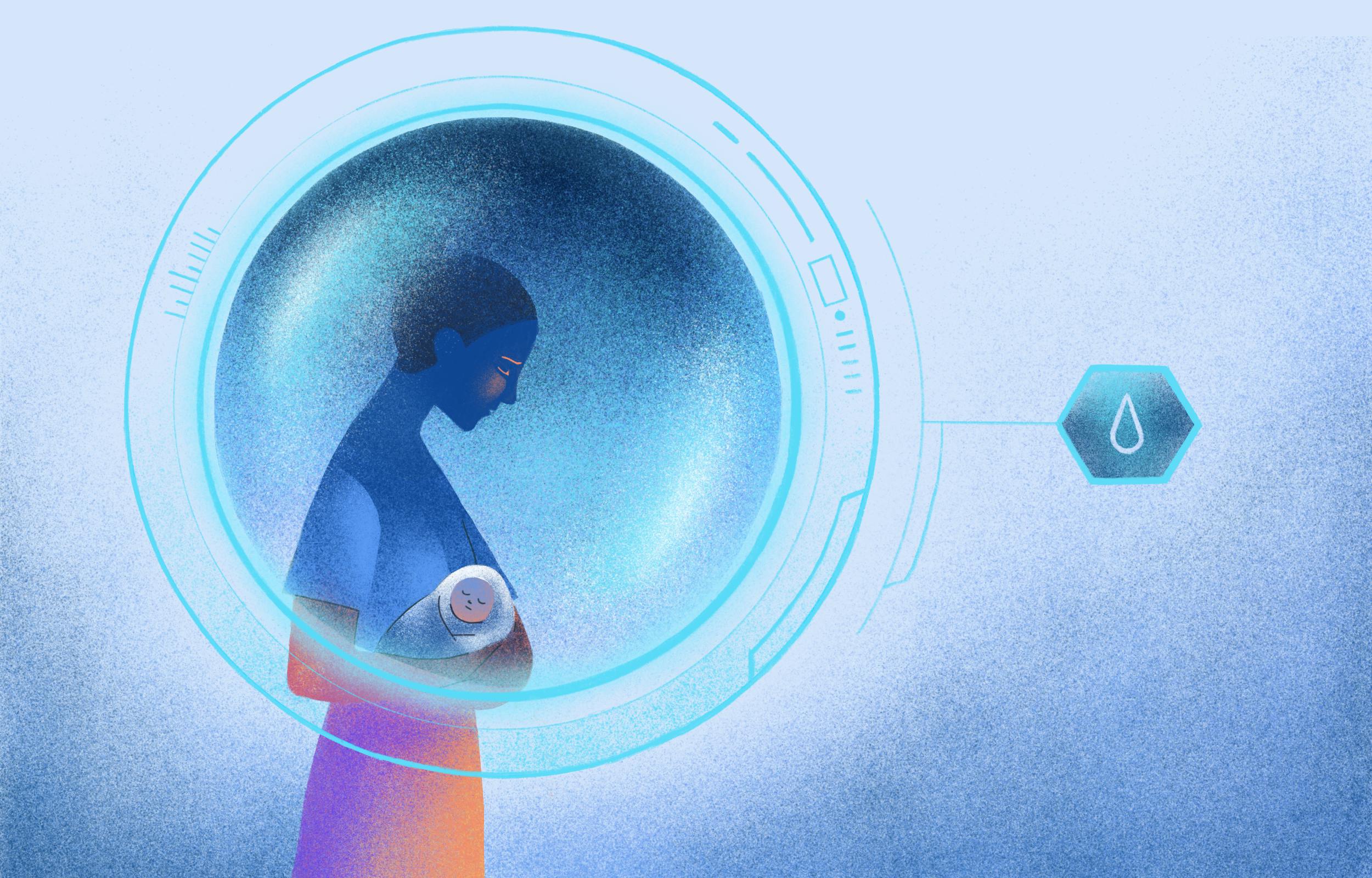This blood test screens for postpartum depression—before symptoms
Blood tests and depression. Certainly, not a diagnostic combination you’d expect.
The innovators at Dionysus Digital Health might change your mind.
The startup’s new AI-enabled genetic blood test, Enlighten, screens for postpartum depression (PPD). And it can be used before symptoms even set in.
PPD is the most common complication of childbirth and the leading cause of maternal death, so the potential impact here is huge. But how does the technology work in theory and in practice? Let’s take a closer look.

How can PPD hide in the blood?
Watching for and treating PPD can be a challenge, to say the least.
About one in seven new mothers is at risk. Screening generally looks like a generic questionnaire. Patients rate how much they identify with mental health screening statements like: “I have looked forward with enjoyment to things as much as I ever did.”
Screening recommendations in the U.S. indicate multiple touchpoints for catching PPD during and after pregnancy. However, research has found that this doesn’t always happen—especially when it comes to low-income patients and women of color.
Then, once a PPD patient is diagnosed, the next hurdle is accessing treatment—which studies show only happens for about one-third of eligible pregnant patients. In many cases, this “treatment” has been limited to verbal reassurance from providers.
That’s where a test that identifies a higher risk for the condition before symptoms start can make a difference. Providers don’t need to rely on subjective screening questionnaires that rely on the condition already having set in. They can help patients get the help they need before things get to that point.
That’s where Dionysus wants to intervene.
“Our aspiration is you can be in treatment before you ever even experience a symptom,” Dionysus co-founder and chief scientist Vivienne Ming said. “Now we can show it’s not just in your head.”
Their researchers have identified a gene that, when expressed, indicates a higher likelihood that hormonal changes impact a person’s mental health. The Enlighten test screens for a higher risk of PPD by screening for that gene.
Enlighten works in tandem with a machine learning algorithm that analyzes the patient’s gene expression—epigenetics—based on decades’ worth of genetic profiles of pregnant people with and without PPD.
The research team published their biomarker research in 2020, and Dionysus is now working with the U.S. Department of Defense and the National Institutes of Health (NIH) to bring the technology through clinical trials. Eventually, they hope insurers will cover the $250 blood test for use between the second and third trimesters of pregnancy.
Our perspective: A win for epigenetic testing with some practicality concerns
However, identifying at-risk patients or even diagnosing them is just the first step. Tests like Enlighten can really make a difference if patients can subsequently access treatments like psychotherapy and medication.
Dionysus is facing critiques common to other epigenetic testing solutions. These products can offer diagnostic information, but they don’t automatically offer a solution.
You may remember last year we discussed longevity startup Tally Health, which offers a DTC epigenetic test that helps users analyze their biological age. Tally’s test offers users insights into possible longevity interventions—namely supplements—but critics argued that this aspect of the company’s offerings was oversold based on where the science was.
While Dionysus doesn’t claim to directly treat PPD, its ability to help patients rests on fairly big assumptions:
- That enough patients will be able to either
- Pay $250 for the test out-of-pocket.
- Get the test covered by insurance, likely only to happen if insurers agree that PPD screening is likely to lower health spending overall rather than raise it.
- That screened patients will be able to access relevant care based on their risk level.
Plus, with Dionysus’ current intentions to offer Enlighten DTC, the product’s effectiveness relies on the patient’s self-directed use. With all the urgent demands of pregnancy and postpartum—along with the flood of other new apps and products new parents need to learn to use and keep up with—is yet another separate product going to fall by the wayside?
We’re sure Dionysus will continue addressing these practicality concerns as they continue through clinical trials and gather more data on the product’s real-world use. In the meantime, we’re excited to see the potential leaps in PPD diagnosis brought about by this fascinating application of epigenetic testing.